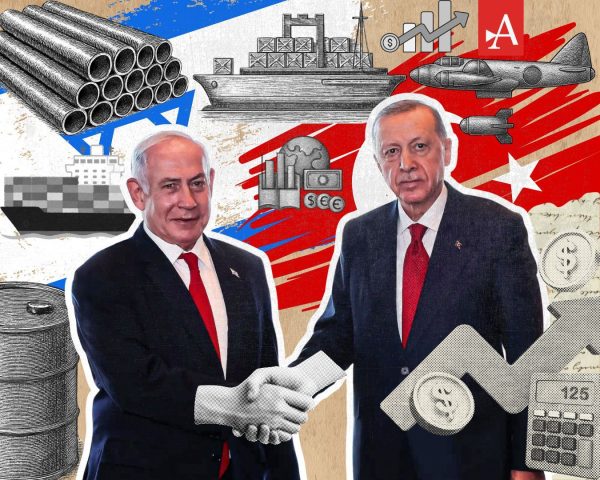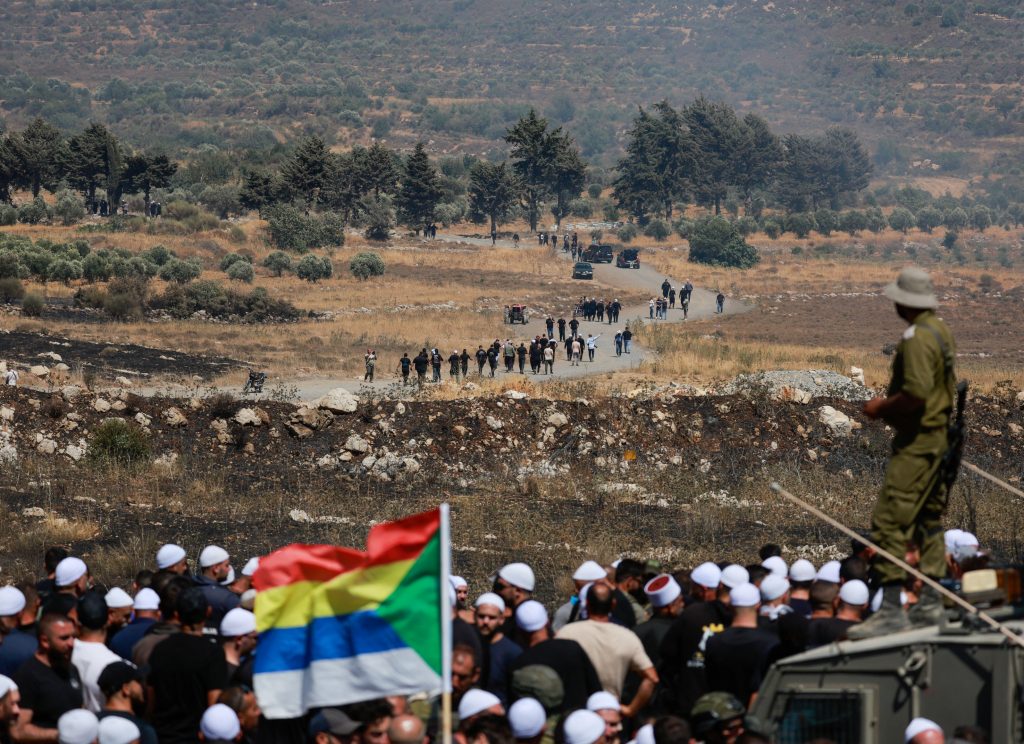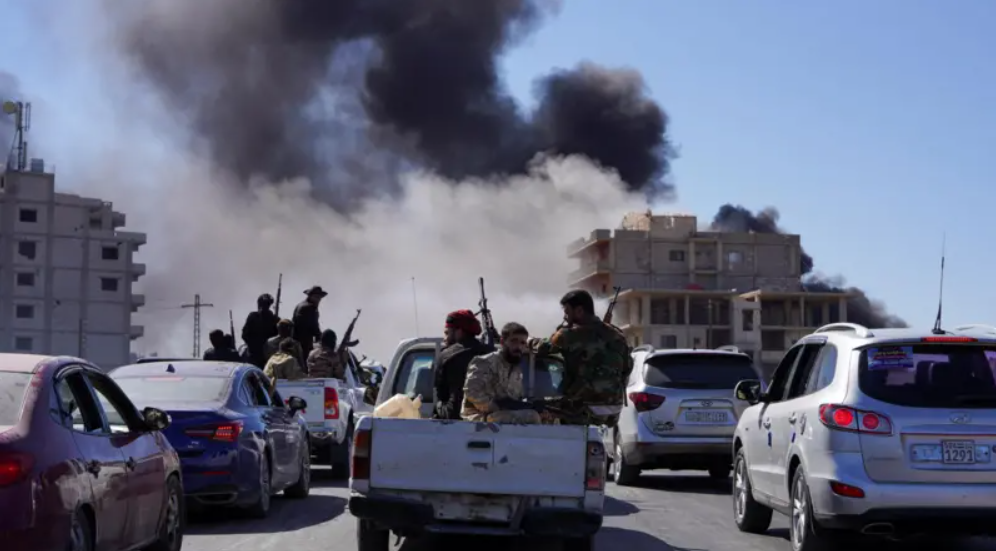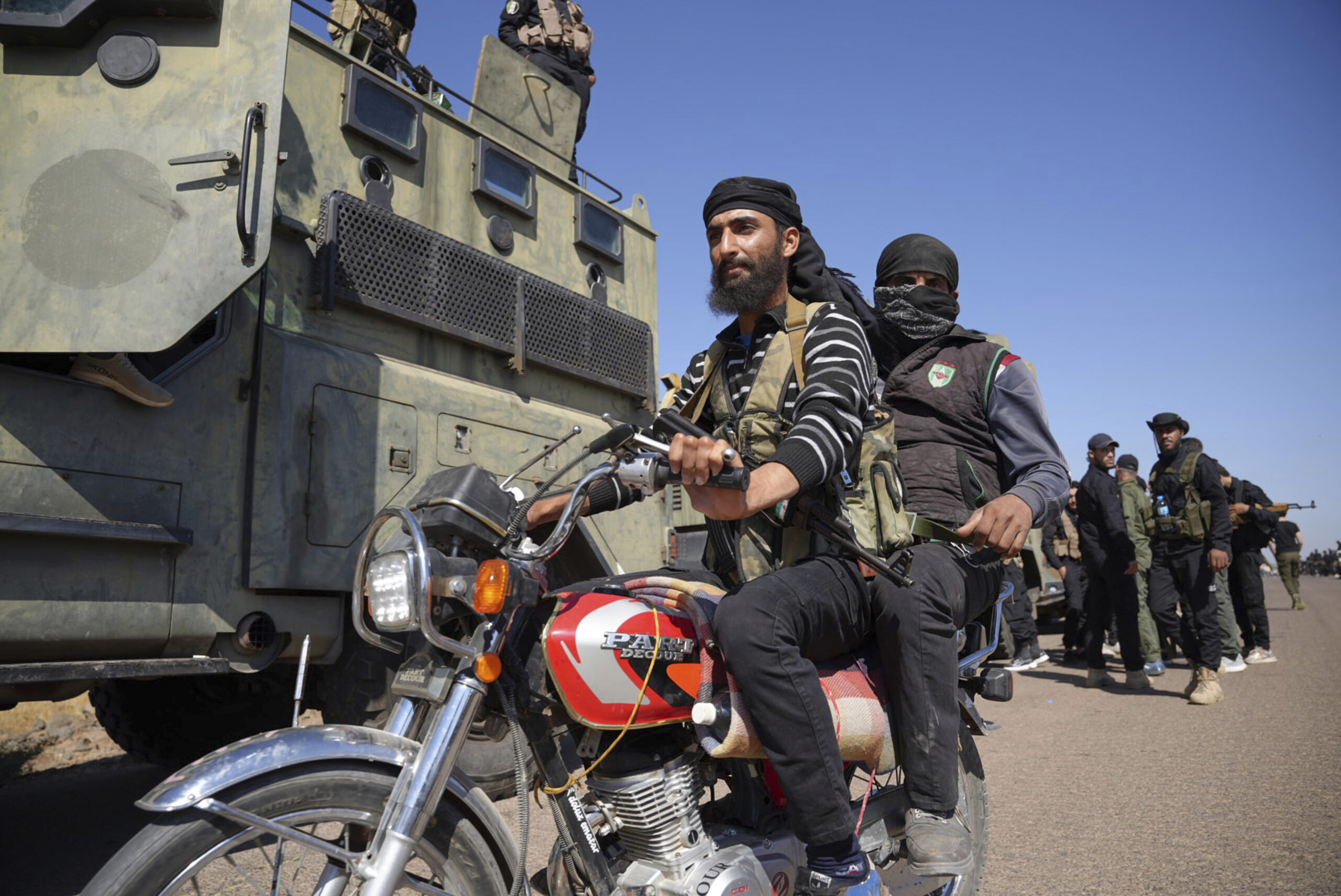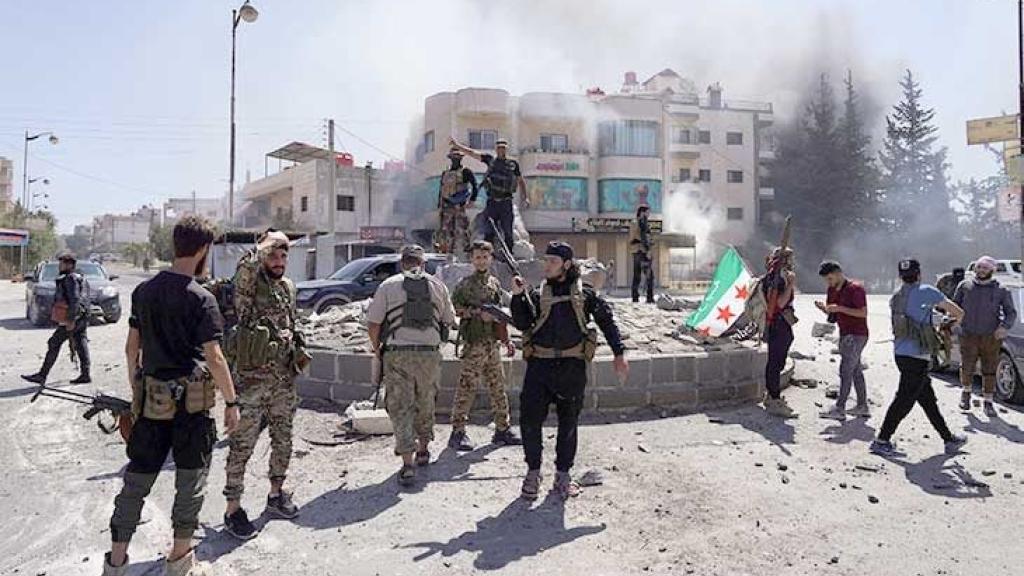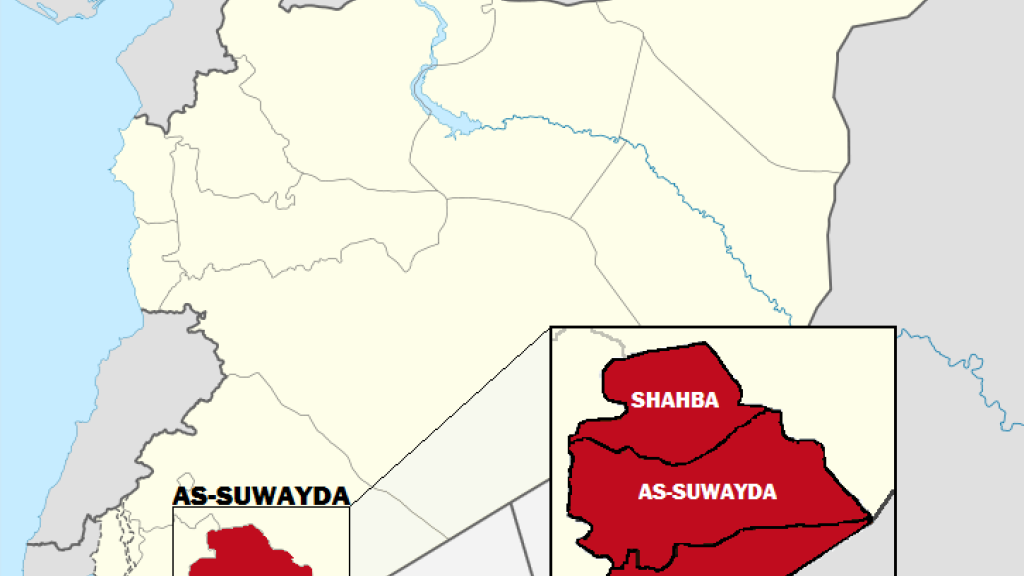Since HTS came to power in Syria on December 8, 2024, 650 women, including 29 children; lost their lives for different reasons such as remnants of war, armed attacks, sectarian attacks, domestic and social violence.

NEWS CENTER
Thursday, January 1, 2026
After the collapse of the Baath regime, with the support of global powers, a jihadist and misogynistic mentality came to power in Syria this time. This development, which took place in the last month of 2024, once again showed that it is only the names that have changed for women who have been oppressed, persecuted and massacred in Syria for many years.
Women have made very important gains during the revolution in North and East Syria. Despite the heavy wreckage of the Baath regime, women in this region rose from the ashes and took their place at the very center of the revolution.
As we entered 2025, women in Syria aimed to spread the struggle throughout the country as usual, to increase women's gains and to place women at the center of life.
However, this jihadist structure brought to power in Syria has stood as one of the most serious obstacles to these goals. HTS, which has left behind a year in power, has never mentioned women's rights; did not include women in the interim administration. Instead of reducing the massacres of women in Syria, it continued to encourage violence against women. The revelation that Shadi al-Veysi, who was appointed to the Ministry of Justice in the interim administration, was a murderer of women aggravated this picture.
The Turkish state, which is trying to turn the security vacuum caused by the change of power in Syria into an opportunity, increased its attacks on Syria, especially North and East Syria, at the beginning of 2025. Women were the first to be targeted in these attacks.
JANUARY
The first two months of 2025 were marked by the resistance of the Tishreen Dam and the Qereqozaq Bridge. Women led the resistance watches at the Tishrin Dam. The Turkish state carried out attacks targeting the convoy that went to the vigil in order to break the resistance.
On January 8, Kerem Ehmed Shehabî El Hemed, one of the leaders of the Zenubiya Women's Community, was killed in the bombardment of the convoy going to the Tishrin Dam.
On January 11, in an attack on the Koçerat region of Dêrik, Şehnaz Omer, one of the executives of Kongra Star, was murdered.
On January 19, the PYD General Assembly announced that Menice Haco Heyder, a member of the party's General Assembly and Co-Head of the Qamishlo Office, was martyred in the attack carried out by the occupying Turkish state at the Tishrin Dam.
On January 22, the Assembly of Martyrs' Families of North and East Syria announced the martyrdom of Ronîz Mihemed Elî, a young woman who was seriously injured in the attack of the occupying Turkish state on the people at the Tishrin Dam on January 15.
On January 24, the YPJ General Command announced that Commander Arjîn Kobanê was martyred during the resistance against the occupation attack on the Tişrîn Dam.
Women reacted harshly to the participation of the gang leader named 'Abu Hatim Shakra', the murderer of Martyr Hevrîn Xelef, Secretary of the Future of Syria Party, at the ceremony where Jolani declared himself the President of Syria.
FEBRUARY
On February 6, the second day of the Rojava People's Tribunal, where the crimes of the Turkish state were tried, continued with the presentation of evidence on the crimes of torture, massacre and rape against women.
On February 12, thousands of women marched in Qamishlo with the slogan "Jin Jiyan Azadi Philosophy Wins Against Conspiracies" to condemn the international conspiracy and demand the freedom of Leader Apo.
MARCH
As of March, March 8 International Working Women's Day activities have intensified. Women's movements in North and East Syria have started their first preparations for 2025 by setting the program for March 8 Women's Day. In this context, the Joint Action Platform of Women's Organizations and Movements in North and East Syria announced its action program with the slogan "We are Building a Democratic Syria with the Philosophy of Jin, Jiyan, Azadi".
On March 8, final rallies were held in the cantons of Cizîr, Fırat, Reqa, Tebqa and Dêrazor on March 8.
1. The Kurdish Women's Conference ended on March 23 with a final declaration consisting of 12 articles. The declaration called for "the urgent realization of the Kurdistan National Congress, which is the hope and desire of the whole society and Kurdish women."
Women also left their mark on the March 21 Newroz celebrations. The intense participation of women in Newroz celebrations held in many centers drew attention. In the first Newroz held after Leader Apo's February 27 call, women showed that they embraced the process and would fight for it to be successful.
On March 24, the Platform for Joint Action of Women's Movements and Organizations announced the launch of a campaign to support women in the coastal areas of Syria with the slogan "Supporting Syrian women is the basis for stopping the massacres of women in coastal areas".
APRIL
April 4, the birthday of Leader Apo and the anniversary of the founding of the YPJ, was celebrated with enthusiasm under the leadership of women in North and East Syria.
On April 14, representatives of 24 women's organizations and political parties in Kurdistan came together to form the Kurdish Women's Union Platform.
MAY
Thousands of women who came together in Hesekê under the leadership of Kongra Star on May 3 demanded freedom for Leader Apo and gave the message "Freedom and stability cannot be achieved without Leader Apo being free."
On May 8, the appointment of Hatim Abu Shaqra, known as the murderer of Hevrîn Xelef, to a military post by the Damascus regime was protested with simultaneous statements held in many cities of North and East Syria.
JULY
Crimes against women were committed in the attacks launched by the Syrian Transitional Government forces on Suwayda on July 13. On July 30, the Joint Action Platform of Women's Organizations and Movements in North and East Syria organized a campaign in support of women in Suwayda with the slogan "Together to protect women in Suwayda from genocide".
The anniversary of the July 19 Rojava-Women's Revolution was celebrated by many circles, especially women's organizations.
Sara Organization for Combating Violence Against Women launched the "Sexual Abuse is a Crime, No to Cover-Up" campaign at the end of July. The campaign continued until the beginning of October.
AUGUST
On August 3, on the 11th anniversary of the Sinjar Genocide, women's organizations in North and East Syria called on the international community to intervene urgently, drawing attention to the increasing attacks on women in Suwayda.
SEPTEMBER
On September 18, the Women's Delegation for North and East Syria met with the Speaker of the French Parliament, Yaël Braun-Pivet, deputies from the left bloc and representatives of the Green Party.
On September 20, the conference titled "Women's Unity is the Foundation of the Establishment of a Decentralized and United Syria" organized by Kongra Star and Zenûbiya Women's Community in Hesekê ended. Approximately 700 women, including politicians, lawyers, intellectuals and activists from different cities of Syria, attended the conference.
On September 22, the Women's Delegation for North and East Syria met with representatives of Women For Women International in Berlin, the capital of Germany.
Continuing its contacts in Europe, the North and East Syria women's delegation met with many German, Iranian and Kurdish academics and women's rights organizations in Germany.
After completing their meetings in Germany, the Rojava Women's Delegation met with parliamentarians, non-governmental organizations and the public in Switzerland.
The Rojava women's delegation, which went to Switzerland after Germany, met with Assyrian women. The Rojava women's delegation, which met with women's organizations in Zürich, called for international solidarity for a democratic solution in Syria. The women's delegation discussed the developments in Rojava and Syria and the situation of women at the panel held in St. Gallen, Switzerland. The delegation's diplomatic activities ended with a meeting event held in Aarou, Switzerland.
OCTOBER
On October 2, Heyva Sor a Kurd, in cooperation with the Cizre Canton Health Committee and the Syrian Free Women's Foundation, launched a campaign with the slogan "Early Diagnosis, New Life".
On October 8, the PYD Women's Assembly launched a campaign to fight against violence against women.
Thousands of women from Cizîrê Canton organized a march in the city of Tirbespiyê with the slogan "Leader Apo's physical freedom is the key to solution and peace". The march was held to condemn the October 9 International Conspiracy against Leader Apo.
On October 12, Kongra Star and the Zenubiya Women's Community launched a campaign demanding the establishment of a free and democratic Syria with the slogan "We will build a free, democratic, decentralized Syria with the solidarity of women." The campaign ended on November 12.
On October 25, the Women's Assembly of Martyrs' Families held its 3rd conference with the slogan "Let's make democracy and peace permanent and ensure the physical freedom of Leader Apo with the spirit of the martyrs of freedom".
Hêvî Silêman, a member of Kongra Star Afrîn-Shehba Coordination, who served for the Kurdish people and women for many years and played a role in the resistance, died on October 28 due to an illness.
NOVEMBER
On November 5, the YPJ and PYD Women's Assembly held a joint workshop titled "Syrian women's unity for freedom, justice and equality under the umbrella of Women's Protection Units" in Kobane.
On November 8, the 4th Annual General Assembly of the Women Journalists Union (YRJ) was held in Qamishlo. Conference was held.
On November 15, the Joint Action Platform of Women's Organizations and Movements in North and East Syria organized an event with the slogan "Together we build a democratic and social society to end violence".
On November 16, the Cizre Canton Women's Committee launched a campaign to support children on the occasion of World Children's Day (November 20).
The Joint Event Platform of Women's Movements and Organizations in North and East Syria started the November 25 events. The platform announced that this year's events will be held with the slogan 'Let's End Violence by Building a Democratic and Communal Life Together'.
In the final rallies held in four centers of North and East Syria and in the city of Aleppo on November 25, the messages "Let's increase the struggle against the dominant mentality and ensure equality" were given.
HUNDREDS OF WOMEN WERE MURDERED UNDER HTS RULE
Since HTS led by Jolani came to power in Syria on December 8, 2024, 650 women, including 29 children; lost their lives for different reasons such as remnants of war, armed attacks, sectarian attacks, domestic and social violence. It was reported that the highest number of cases were recorded in Aleppo, Damascus, Homs, Hama, Damascus countryside, Daraa, Tartus, Quneitra, Latakia, Suwayda and Damascus-controlled Deirazor.
Aleppo: 31 women, including 2 children
Damascus: 14 women, including 1 child
Homs: 34 women, including 8 children
Hama: 36 women, including 3 children
Daraa: 23 women, including 5 children
Latakia: 16 women
Derazor: 28 women, including 2 children
Suwayda: 34 women, including 2 children
Damascus countryside: 29 women, including 1 child
The Syrian Observatory for Human Rights (SOHR) documented the murder of 127 women by armed groups affiliated with the Syrian Transitional Government. The Syrian Network for Human Rights (SNHR) reported that more than 100 women were killed in coastal massacres alone, while 130 women were killed in Suwayda.
